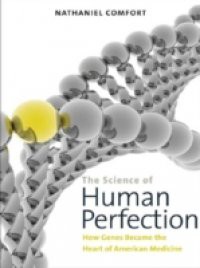Almost daily we hear news stories, advertisements, and scientific reports that promise genetic medicine will make us live longer, enable doctors to identify and treat diseases before they start, and individualize our medical care. But surprisingly, a century ago eugenicists were making the same promises. The Science of Human Perfection traces the history of the promises of medical genetics and of the medical dimension of eugenics. The book also considers social and ethical issues that cast troublesome shadows over these fields. Keeping his focus on America, science historian Nathaniel Comfort introduces the community of scientists, physicians, and public health workers who have contributed to the development of medical genetics from the nineteenth century to today. He argues that medical genetics is closely related to eugenics, and indeed the two cannot be fully understood separately. He also carefully examines how the desire to relieve suffering and to improve ourselves genetically, though noble, may be subverted. History makes clear that as patients and consumers we must take ownership of genetic medicine, using it intelligently, knowledgeably, and skeptically, lest pernicious interests trump our own.

